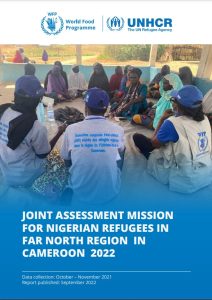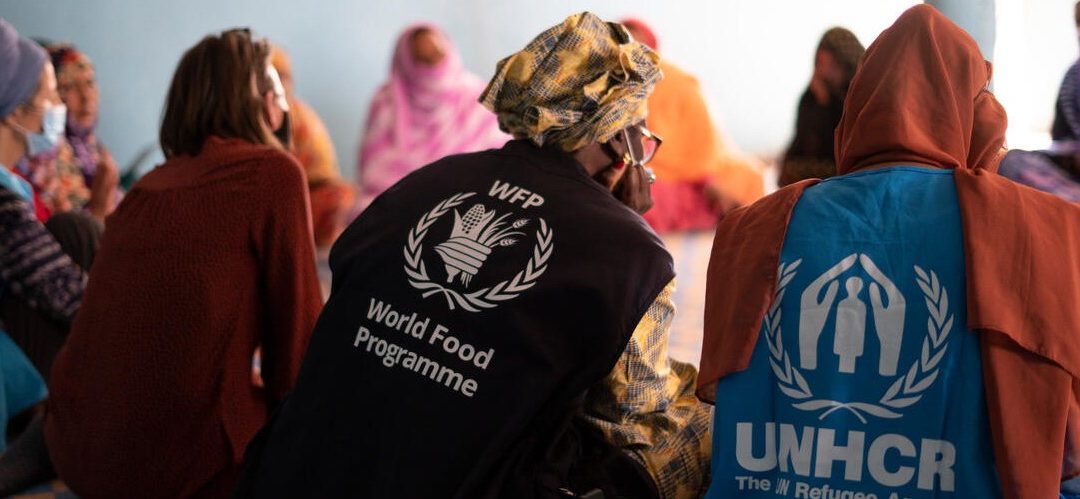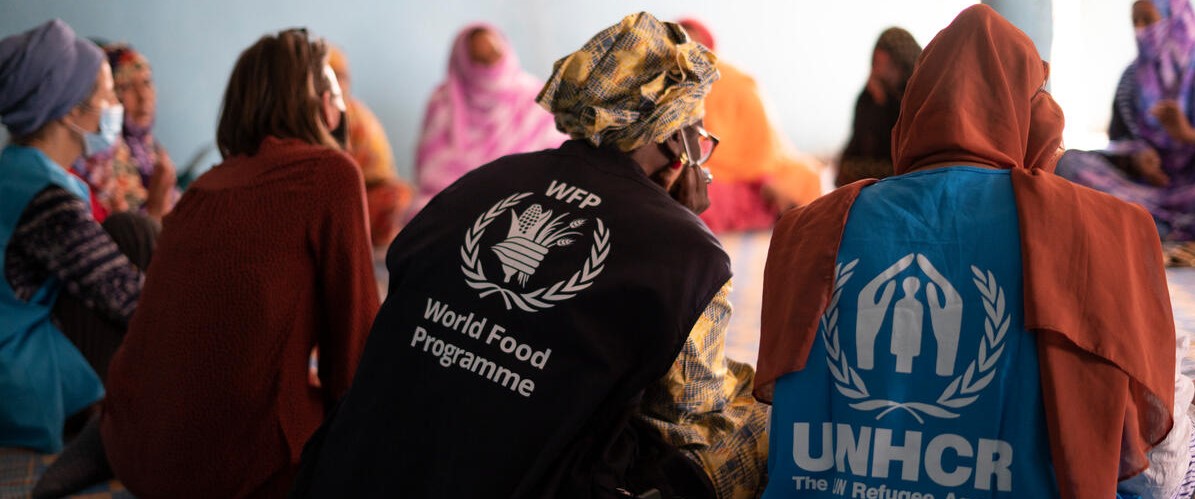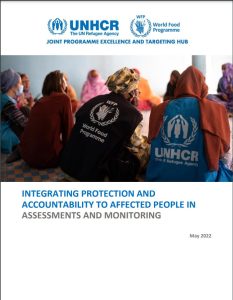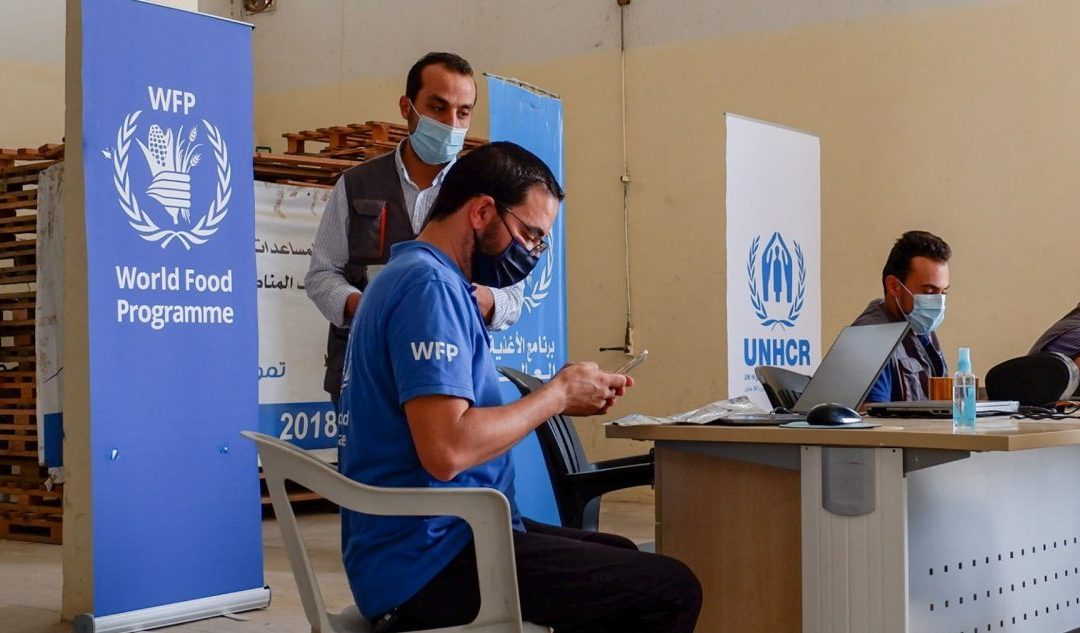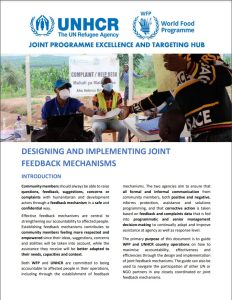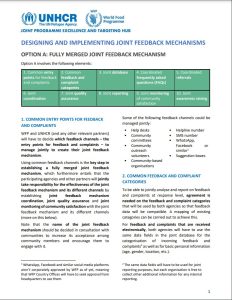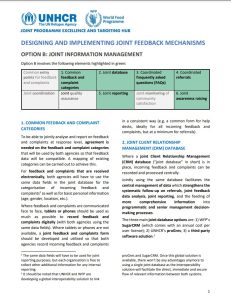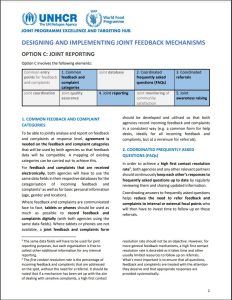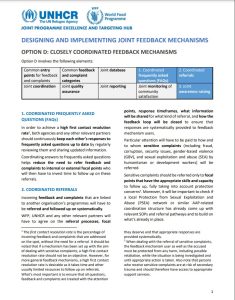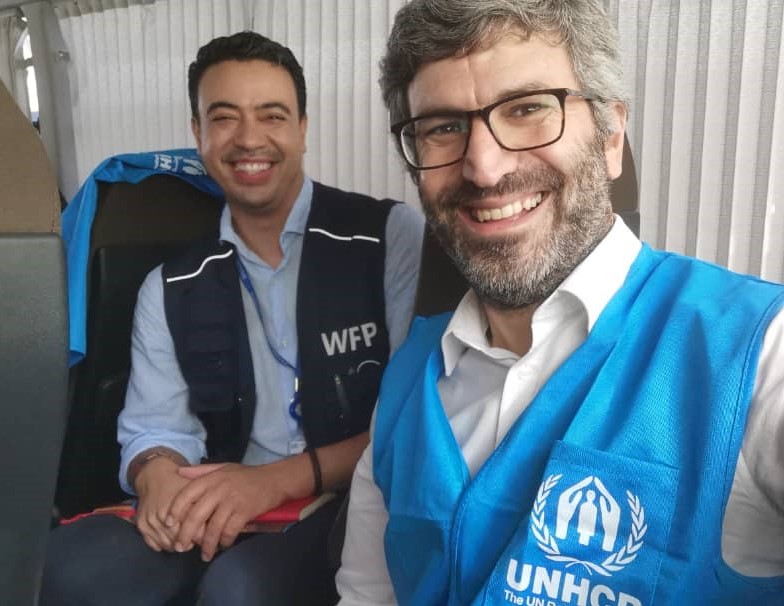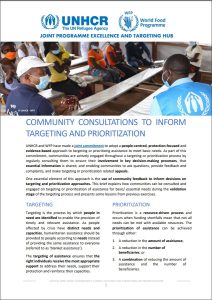Ziad: Both our operation in Mauritania and WFP requested support from the Hub for the design and implementation of a joint targeting strategy – which ensures that basic-needs assistance is provided to those most in-need – according to socio-economic aspects to identify the most vulnerable refugees. Together, we leveraged this technical support to connect with the government of Mauritania and the World Bank, aiming to include refugees in national social protection programmes.
Paulo: The Hub provided support on a range of technical aspects – all essential for the development of the targeting strategy – including how we share, use, and analyse data; how we manage risks; and how we involve the community in decision making. Since these exercises are not done very often, as it is difficult to keep technical resources for targeting in-country, having this capability to fill technical gaps was very important.
2. What was the main value the Hub brought to our Mauritania operation?
Paulo: One of the main added values was the neutral role the Hub played. Because of different mandates and approaches, sometimes it can be difficult to reach a consensus – having an interlocutor who represents a joint interest is important. The constant follow-up from the Hub also helped us to keep things moving forward – sticking to timelines in a very technically complex process – ensuring we met the needs of the people we serve in a timely manner, and having two-way discussions through broad consultations.
Ziad: What also worked very well was the good collaboration between WFP and UNHCR, in addition to having an in-country consultant designated by the Hub to assist in the process. The work that was done with support from the Hub was incredibly different from the work that was done before; the Hub prepared the ground for decision making, always providing options – we were then able to make informed decisions because of all the background insight and knowledge.
3. What have you achieved so far through the Hub’s support?
Ziad: We were able to achieve our common objectives to improve refugee self-reliance and resilience – the people we serve continued to be the priority in our collaboration. The technical support provided by the Hub allowed us to have a fair targeting and to identify those who are most vulnerable based on socio-economic aspects. This included secure data sharing processes – following our data protection principles – to determine eligible households; an assessment conducted with refugees to better understand their needs; and the development of a joint targeting strategy to identify those most vulnerable.
Paulo: Thanks to the Hub’s support, we had a very technically sound process based on common agreements – we were able to expand and be quicker in our response, bringing great improvement to the lives of refugees. For example, we are supporting over 1,000 income-generating activities, as well as ensuring the conservation of environmental, soil and water assets through livelihood interventions (relief-based interventions that involve providing food and meeting other essential needs), seeking to reduce the pressure on natural resources.
4. What is your advice to an operation seeking support from the Hub?
Paulo: Be very clear on what your expectations are – it is very tempting to have a 10-page Terms of Reference (ToR) for the Hub with everything that you want. But prioritizing and being pragmatic is very important to create a clear ToR that will be useful in guiding the entire process.
Ziad: Have initial discussions on each step at the beginning of the process, getting full clarity on different roles and responsibilities to ensure all those involved know how and when to engage.
——————
More information on UNHCR and WFP’s work in collaboration with the Government of Mauritania to support the inclusion of refugees in the national social safety net can be found here.

